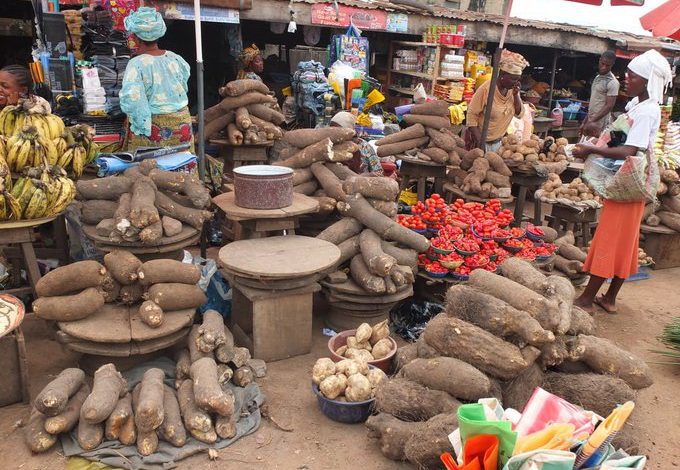Surveys have indicated that essential food items have experienced a minimum 30 percent price increase from December to April in at least eight states.
Consumers are lamenting the impact of price hikes on their budgets, as the soaring prices of food items persist nationwide despite the recent strengthening of the naira.
President Bola Tinubu recently pledged to oversee a strengthening of the local currency, aiming for this to be mirrored in commodity prices.
As a follow-up to the President’s decision, operatives of the Federal Competition and Consumer Protection Commission last week raided some Abuja supermarkets over unfair pricing, vowing to extend the clampdown to other states.
Yet, the most recent discoveries revealed that staple food prices, such as beans and garri, had surged by a minimum of 30 percent.
The surveys were conducted in Lagos, Ogun, Gombe, Kwara, Sokoto, Ekiti, Osun and Niger states.
Over the recent months, the costs of key food items have persistently escalated, particularly following Tinubu’s removal of the petrol subsidy and devaluation of the naira. As inflationary strains intensify nationwide, Nigerians are grappling with challenges in affording basic sustenance. Matters worsened as the naira significantly depreciated against the dollar and other foreign currencies, including the CFA, from February to March.
With the recent appreciation of the naira in the foreign exchange market, there was optimism that the prices of food items, which had risen in tandem with the dollar, would also decline in the market. However, investigations confirmed that only the prices of rice had decreased thus far.
As of Wednesday, findings showed that the prices of beans, garri and other food items remained high despite the naira appreciation.
It was gathered that in various markets in some states gathered, traders and sellers were lamenting over the high cost of food items; though the prices differ depending on the location.
According to the surveys, the price of a bag of garri has risen to N41,000 from N37,000 in less than two weeks, marking a 31 percent increase. In January, it was approximately N31,000.
Similarly, a bag of one kilogramme of Semovota which went for N700 in December now goes for N1,400. This represents a 100 per cent increase in the price. Also, one kilogramme of wheat which went for N500 in December is now being sold for N1,200. This indicates a 140 per cent hike.
Also, findings showed that in January, a bag of beans went for between N65,000 and N70,000. However, as of Wednesday, a bag of beans went for N185,000. This indicates a 164 per cent increase.
The development means that the least increase recorded in the category of basic and essential food items is 31 per cent; this was seen in the price of garri.
Consumers across different parts of the country are expressing their frustration over the hardships resulting from the increased prices.
Speaking to The PUNCH, a resident of Isolo, Mr Rafiu Adedoja, complained that the price of a wrap of his favourite meal, amala, had increased.
He explained that because of his occupation as a bricklayer, he eats regularly at a well-known canteen. He expressed disappointment that he previously purchased a serving of amala for N100, but now it costs N200, and he observed that the portion size has decreased.
He noted that he now buys at least five wraps which is N1,000, excluding the meat which brings the cost of his meal to between N1,600 and N2,000 which is not economical for him given the present state of the economy where jobs come in trickles.
Also speaking, a mother of four, who is a hairdresser in the Okota area of Lagos, Mrs Bola Adekunle, decried that the majority of the food items in the market especially garri, beans, groundnut oil, and even yam had increased which was affecting so many people especially low-income earners like her with children to feed.
She explained that food prices were becoming unbearable and getting worse daily.
“We eat once a day now, but if I record higher sales, we can eat twice. In the last two months, I can’t remember the last time that my family ate three square meals,” Adekunle moaned.


Sodiq Lawal is a passionate and dedicated journalist with a knack for uncovering captivating stories in the bustling metropolis of Osun State and Nigeria at large. He has a versatile reporting style, covering a wide range of topics, from politics , campus, and social issues to arts and culture, seeking impact in all facets of the society.











